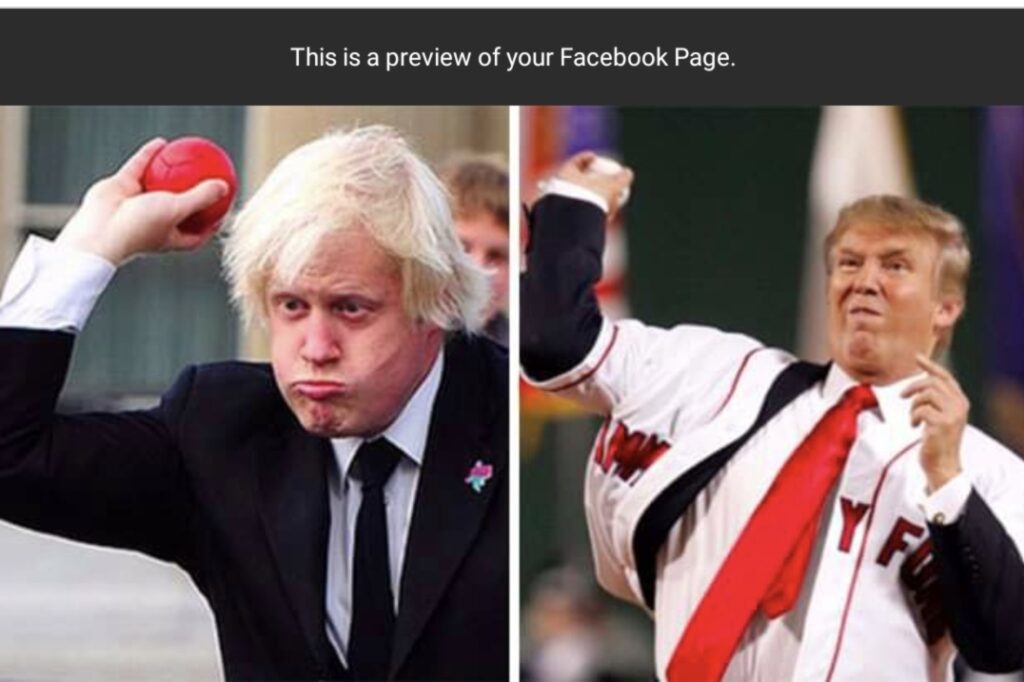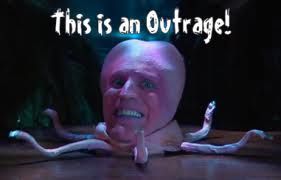Progressive values are the common goal of the political and social left. We are unified in our objective that we want society to be more accepting, kinder and more equal. We are agreed we want a world where prejudice and discrimination are eradicated.
We have come a long way as a society. It is hard to believe that 54 years ago it was illegal to be gay in Britain. It is even more astounding to realise that only two years prior to the decriminalisation of homosexuality we still had the death penalty on our statue books. Disability Discrimination legislation was introduced in 1995 and expanded on in 2010 with the Equality Act which introduced protection against discrimination on the basis of “age, disability, gender reassignment, marriage and civil partnership, pregnancy and maternity, race, religion or belief, sex, and sexual orientation.”
It would be hard to find a clear thinking person who argues with any of this. Certainly not in 2021 and certainly not on the social left. It would indeed be fair to say that anyone who wants to see an individual in any of these categories discriminated against is likely to be a rabid bigot.
But there has now come a point where we have to assess the progress we are making against that unifying goal of acceptance and ask if the behaviours in place today are still working in favour of that goal or if we have become side tracked from our pursuit of acceptance with the baggage of a rising victim culture, the trend for self labelling and the concept of identity politics.
‘Victim culture’ is a term more often used by the political right than the political left but it is a term that has relevance here. When I use the term I am not referring to people who have been a victim of an act or aggressor, I am speaking of people who have made the choice to identify as a victim. I have met and spoken with survivors of domestic abuse, rape and grooming and it was telling that many (most) of these strong people do not consider themselves victims. They could not prevent what happened to them but they chose to reclaim their lives back. They use the term survivors because they are strong, unbreakable individuals who are not willing to allow tragedy in their past to rewrite their future. I admire them greatly for that.
But on the flip side of these strong survivors we have a growing trend on social media for victimhood. People who want to be perceived as victims whether this be for sympathy, attention or because they are simply too apathetic to get over themselves.
I saw an interesting example the other day where an individual was furious because another person had posted a positive social media post about a person with disabilities defying that disability to become an accomplished sportsperson. The attitude was that the post ‘shamed’ people with disabilities. It was ‘ableist’ to commend people who overcome disabilities to achieve success because there are people with disabilities who have not achieved similar success.
This kind of thinking is not conducive to progression. A society where we cannot applaud achievers is not a society that will function well. Why would any reasonable person feel shamed, discriminated against or bullied simply because somebody else has made a good job of being the best version of themselves they can be?
The trend of self labelling is equally as problematic. I have watched in dismay as Twitter bios have grown longer and more convoluted as people compete to have the most mental illnesses, the most unusual gender descriptors and the most ‘labels’ they can cram into the space.
I have no doubt that many of these labels are genuine. (Though I would question why anybody would want to share their personal mental and physical health issues with perfect strangers.) Other labels I suspect have been put there for attention, to be provocative or to play the victim when challenged online.
I came under fire recently for suggesting that a person need to do something more than add a hashtag in their Twitter bio for a statement about themselves to be true. I stand by this. There needs to be a tangible reality corresponding to a claim in order for it to be valid. I could put “Roanna Carleton Taylor, Astronaut,” in my bio but it wouldn’t make it true when the nearest I’ve got to outer space is a 30 minute flight ten years ago to Edinburgh.
The trouble with all these labels is that among all the confusion people who are genuinely in need are slipping through the cracks. While some people are jumping on the band wagon to tell people how cool and non binary they are, there are people out there committing suicide because there isn’t anywhere near enough support for the transgender community. Likewise with mental health. We have never been so under resourced from a health care perspective and it is always mental health funding that suffers the most. Amid the cacophony of voices and labels there are people with severe mental health issues who are being overlooked by the system.
The issue when everybody wants a ‘label’ is that people with a genuine need for support get forgotten.
If we want to be genuinely progressive and reach that ultimate goal of acceptance we need to understand that the needs of others can be more important than our own. We need to learn how to step out of the spotlight for the sake of others.
But this is easier said than done in the toxic world of social media with the constant battles of one-upmanship. And the frustrating thing is that the people who shout the loudest that everything they see is racist, ableist etc. (who probably genuinely believe they are advancing progression) are actually the people pulling us furthest away from the society we want.
To give another example, there has been a ‘Twitter war’ raging for weeks now regarding the posting of a ‘consensual and friendly’ (and I can’t believe I have to type that) banana emoji between a black woman and Asian man which was deemed by an uninvolved third party to be racist. Despite this period coinciding with some of the worst racism I have ever seen in the aftermath of the England football team defeat these innocent ‘banana emojis’ have remained a contentious issue for many.
Obsessing over minor incidents and obviously non racist trivia like this does nothing to advance anti-racism. It is classic ‘Little Boy who called Wolf.’ If we cry RACISM too often where there is no racism then the term loses its meaning. And once again it is the people who are genuinely experiencing racial harassment who lose their voices as a result.
A further challenge to our goal of acceptance is the growth of identity politics.
Broadly defined (by Wikipedia): Identity politics is a political approach wherein people of a particular gender, religion, race, social background, class or other identifying factors, develop political agendas that are based upon theoretical interlocking systems of oppression that may affect their lives and come from their various identities.
Essentially, identity politics is cultural tribalism, the bonding of groups over common characteristics and beliefs. Some very positive outcomes have come out of identity politics including, most notably, the Black Lives Matter movement and the LGTBQ Pride movement. But there is a dark side to identity politics too. The danger is that people prize loyalty to their ‘tribe’ over rationality or considered debate. We’ve seen this for years with White Supremacists and Nationalist politics but social media has exacerbated this polarity between distinct groups and then ‘them and us’ mentality is now becoming wide spread across all community groups.
This division is a breeding ground for prejudice.
It is also a risk to the distinct and unique identity of an individual. This growing tribal mentality allows people to identify so strongly with their community group that they cease to see themselves as an individual.
This leads to the concept that every criticism of an individual is actually an attack on the ‘tribe’ they represent.
Or, more simply, it leads to people who whine: “You’re just picking on me because I’m Black/White/Asian/Muslim/Jewish/Female/Male/Non Binary/Gay/Straight/Disabled etc,” to excuse their behaviour.
To be clear it is always racist to criticise a person because of their skin colour. It is not racist to criticise a person of any skin colour for their behaviour. The danger of identity politics is this distinction is becoming increasingly blurred.
The right wing believe society has become oversensitive and in some cases I agree with them.
Only today a friend had a Facebook page taken down for using this allegedly ‘ableist’ image of two non disabled politicians. Ridiculous.

I don’t see the stiff upper lip mentality as admirable in the way the right wing do but I do see the inclination to take offence at every action or comment, no matter how innocuous or insignificant and, crucially, no matter what the intention is behind it… as a problem.
The ‘offended by everything’ types also do nothing to win over the hearts and minds of the centrists in the country. Whether we like it or not there are a lot of people out there reading the Daily Mail and scoffing at what they term ‘political correctness.’ These are the people who determine general elections. If we want a socialist government who will actively work to address the inequalities in society then we need to get these people on side. And we do that by highlighting genuine examples of racism, ableism and prejudice that need tackling, not by looking to take offence when there is none to be taken.

Roanna Carleton Taylor is one of the founder members of Resisting Hate. She is the author of many of our articles, and also writes occasionally for other media publications including Huff Post, Byline Times and Immigration News. Roanna loves German Shepherd Dogs and Oil Painting.
I like that both of the examples highlighted in this post of people “being offended by everything/by trivial things” are related to ableism, the systemic oppression of disabled people. Also, the author’s aside of “why would anyone want to disclose their physical or mental health issues with strangers” (maybe because the personal is political, and disabled people want to band together based on commonalities in material conditions or life experience? One might as well ask why queer people would want to announce their personal sexual preferences to strangers, or why women (cis or trans) or trans people in general, would want to announce their genital configurations to strangers). This all seems to suggest that for all the author’s posturing about optics to “win over centrists” (something I’m not at all convinced we should be throwing certain marginalized people who “seem to self-identify as victims” under the bus to achieve) is really just covering for the possibility that she’s the one who is offended, by people discussing a form of oppression she is unfamiliar with or does not personally experience. This seems to be the case in most situations where an apparent leftist/progressive starts complaining about “identity politics.” That term is unfortunately co-opted very often in leftist spaces to mean “discussions of a form of oppression that doesn’t affect ME.” Given that recent polls in the UK show that most people don’t even know what terms like “woke” mean, I’m skeptical that playing respectability politics, or gatekeeping marginalization, is necessary to win over unaffiliated/independent people to leftist and progressive causes.